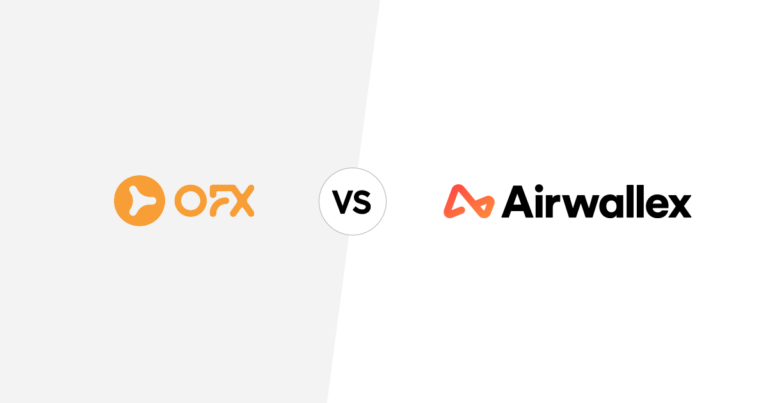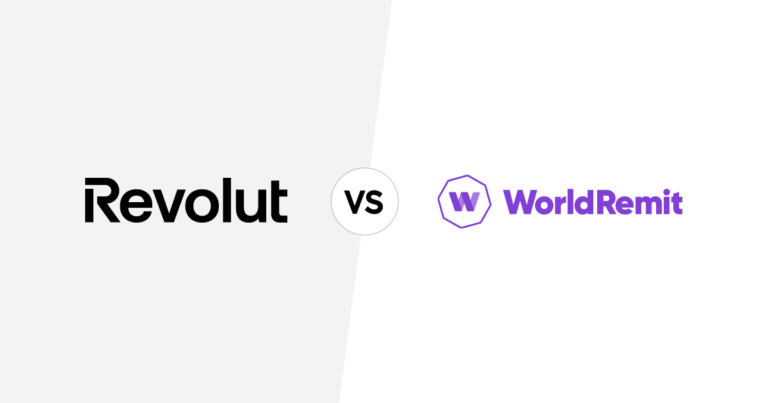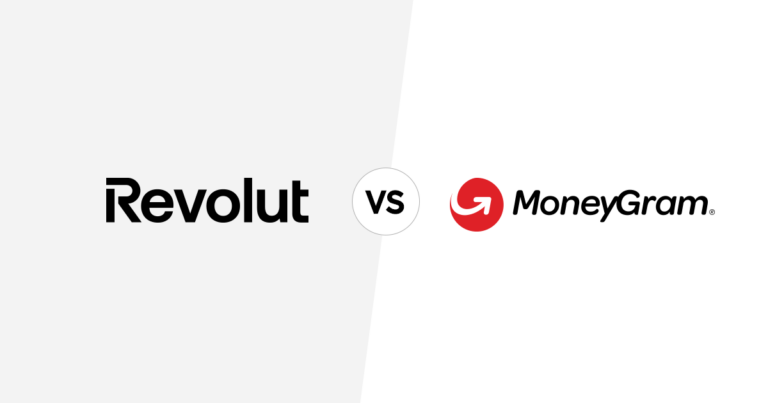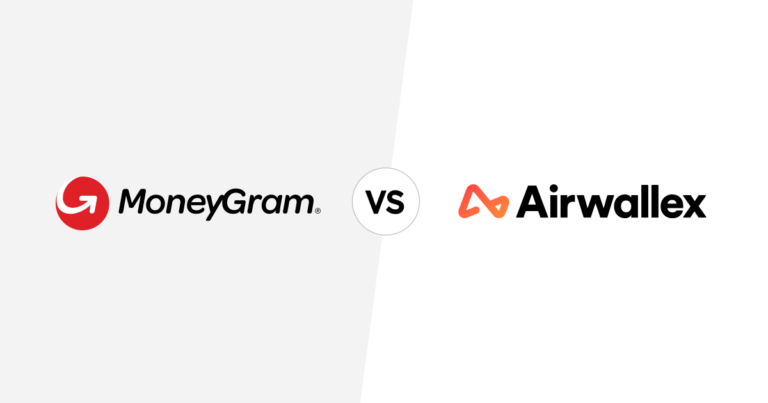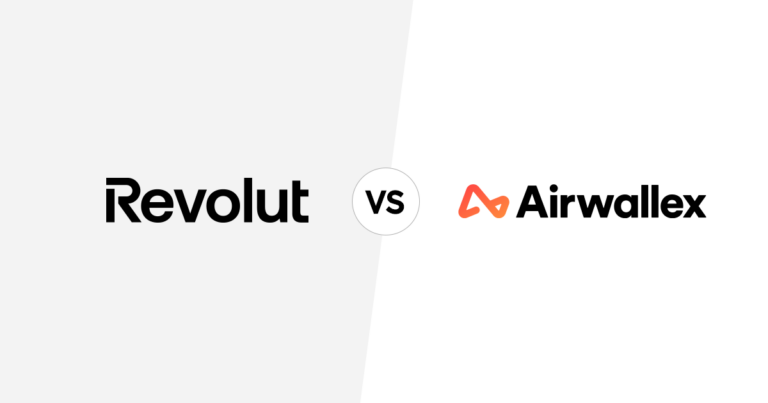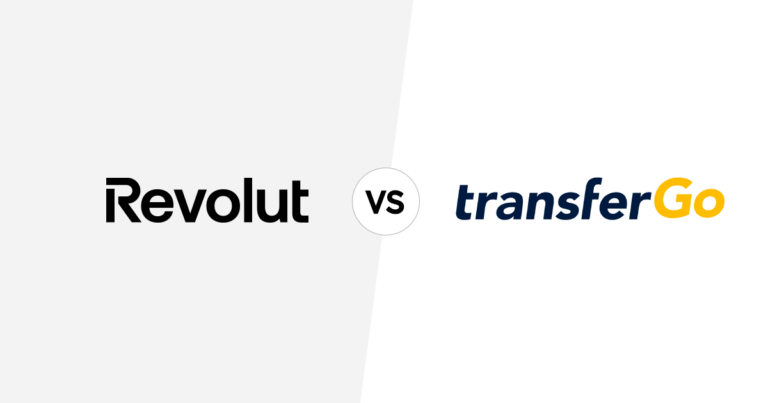Complete guide to obtaining Germany visas for Indians
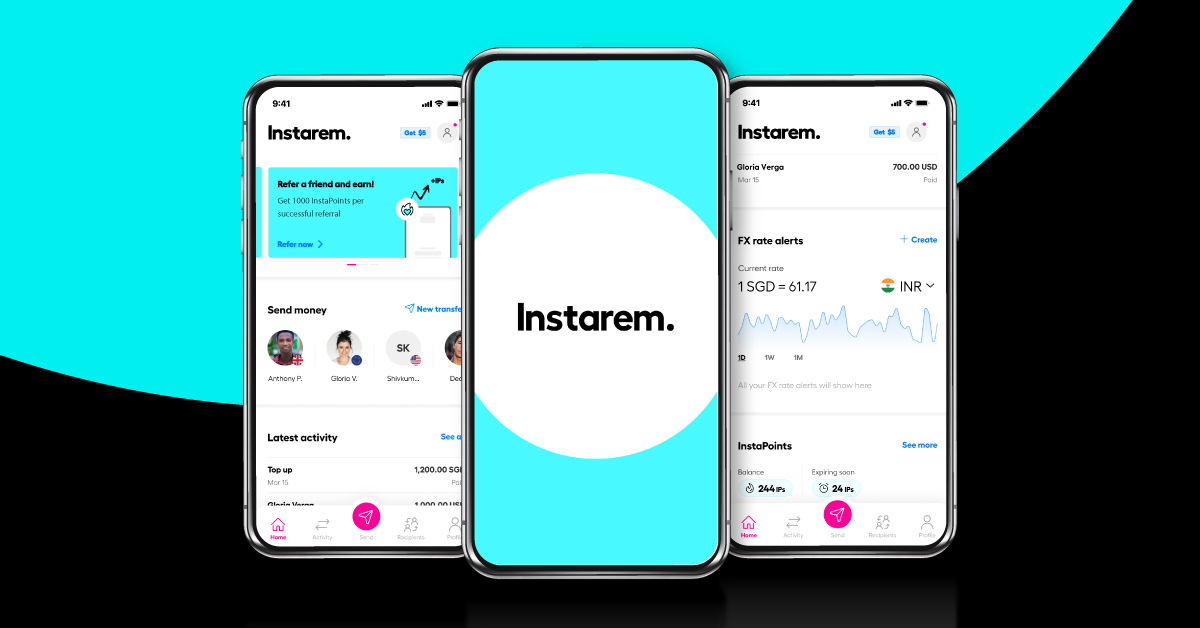
This article covers:
- Understanding different Germany visa types
- Types of short-stay Germany Visa
- Germany Visa for Cultural, Sports and Film Crews
- Requirements and application procedures for German short-stay visa
- Types of long-stay Germany Visas
- Requirements and application procedures for German Long-stay Visa
- How to manage your finances in India from Germany?
- Conclusion
Germany evokes a multitude of images in the minds of people worldwide, from the vibrant atmosphere of its beer festivals to the unending allure of its techno scene and the delightful taste of its freshly baked bread. Each person has unique associations with this country, and hidden gems await those who choose to make Germany their home. The German people have every reason to take pride in their numerous accomplishments. Germany has profoundly impacted the world in various domains, continuing to stand out among nations. Thus, attracting visitors from all over the world, including from India — another vibrant and culturally rich country.
Understanding different Germany visa types
In 2022, a total of 76,519 individuals applied for a German Schengen visa. These visa applicants had diverse reasons for visiting Germany, ranging from tourism purposes to seeking training or internships. Despite the varying motivations, the visa application process can often be complex and challenging to navigate.
Having a clear understanding of the expectations of a visa applicant can significantly enhance the likelihood of a successful application.
Therefore, it is crucial to familiarise yourself with the proper procedure to complete this application successfully and ascertain your eligibility before you apply for a Germany visa from India.
As an Indian, you’re required to apply for a visa even if you’re planning to stay short-term in the country as a tourist or visit friends and family.
However, if you already have a valid Schengen visa issued by another country, you can use that visa to enter Germany for short visits. There are two types of visas — Short-stay visas (Schengen visa) and Long-stay visas (National visa).
Schengen Visa (Short-Stay)
Designed for stays within Germany and the broader Schengen area, short-term visas – also referred to as C-Visas or Schengen visas – are valid for up to 90 days within a span of 180 days.
These visas are typically issued for purposes such as tourism, business meetings, short-term studies or internships, visiting friends or family, and so forth.
The Schengen area is a zone where 26 European countries, including Germany, abolished their internal borders, allowing unrestricted movement of people across the region and a Schengen visa allows you to travel across all these countries. When applying for a Schengen visa, the applicant must provide proof of their travel purpose, sufficient financial resources for the stay, and proof of travel health insurance. The applicant also needs to demonstrate the intent to return to their home country after the visa expires.
National Visa (Long-stay)
Long-term visas, also referred to as National Visas or D-Visas, are for those who wish to stay in Germany for more than 90 days and for specific purposes, usually for studying, working, family reunions, or making Germany their permanent home.
Unlike the Schengen visa, a National visa is not valid for travel throughout the Schengen area. It initially allows entry into Germany and is valid for the specific purpose mentioned in the visa. After arrival, the visa holder must obtain a residence permit from the local immigration authorities for their intended purpose.
The requirements for a long-term visa are more comprehensive. These could include demonstrating language proficiency, recognition of foreign qualifications, proof of a job offer (for employment visas), university admission (for student visas), and other specific requirements related to the purpose of the visa.
It is also worth mentioning that long-term visas often have to be applied for from the applicant’s home country, whereas in some instances, short-term visas can be applied for from a third country.
Types of short-stay Germany Visa
There are several types of Schengen Visa that you can apply for to suit your travelling conditions and situations:
Transit and Airport Transit Visa
The Transit Schengen Visa is designed for individuals who solely require entry into the Schengen territory to change their mode of transportation.
There are two distinct types of Transit Schengen Visas:
- Airport Transit Schengen Visa
- Transit Schengen Visa for Seafarers
The Airport Transit Visa grants its holder the ability to transit through the international zone of a Schengen Country Airport without actually entering the Schengen Country Area. On the other hand, the Transit Visa allows its holder to transit through multiple Schengen countries by car, coach, or plane on the way to a non-Schengen country, with a maximum duration of up to 5 days.
Germany Tourist Visa
The Germany Tourist Visa is categorised as a short-stay Schengen Visa specifically for travel to Germany. Its primary purpose is to allow the holder to visit Germany for tourism purposes, such as sightseeing and experiencing the country’s attractions. This visa can be issued with a maximum validity of 90 days within 180 days.
Friends/Family Visit Visa
The Friends/Family Visit Visa is applicable if you plan to travel to visit a family member or a friend. This type of visa allows for a stay of up to 90 days within a 180-day period.
It is also known as the Schengen (short-stay) visa to visit family or friends.
Germany Business Visa
The Germany Business visa falls under the category of short-stay Schengen visas, granting its holder the privilege to enter and stay in Germany for a duration of up to 90 days within 6 months unless otherwise specified on the visa sticker. This visa is intended for individuals who visit Germany for business-related activities, such as conducting business meetings, signing contracts, and participating in various entrepreneurial activities.engaging in other business-making endeavours.
Official Germany Visit Visa
The Schengen Visa for Official Visits to Germany is a travel authorisation issued to individuals who have received an official invitation to participate in various activities within the German territory. These activities may include attending meetings, consultations, negotiations, and exchange programmes. This visa allows the holder to undertake their journey to Germany for specified official purposes.
Germany Visa for Cultural, Sports and Film Crews
The Germany Cultural Visa, also known as the Schengen Cultural, Film Crew, Sports, and Religious Visa, grants individuals entry into the Schengen area for engaging in events associated with culture, sports, film shooting, or religious activities within the German territory.
When applying for a Cultural Visa, the primary purpose must fall under one of the following categories:
- Participation in a short-term cultural or sports event.
- Pursuing religious commitments.
- Engaging in film-making activities.
Germany Trade Fair & Exhibitions Visa
Indian nationals intending to attend or participate in trade fairs or exhibitions in Germany are obligated to apply for the Germany Trade Fair & Exhibitions Visa. Once approved, this visa will grant you permission to visit, attend, or take part in trade fairs or exhibitions within Germany.
Germany Training/Internship Visa
This work permit is specifically designed to enable you to work in Germany. To obtain this permit, the company or organisation offering the internship must provide it for you. It’s important to note that internships offered through the European Union programmes like Erasmus, Socrates, and Leonardo do not require this document.
Short-stay Medical Treatment Visa
The Schengen Visa for Medical Reasons grants its holder the ability to enter any of the Schengen member states to seek medical treatment for their health condition.
This particular visa is suitable for individuals requiring medical care in Europe for a duration of up to 90 days. However, if your medical therapy or treatment is expected to extend beyond this timeframe, it is recommended to apply for a National Visa for Medical Treatment in the specific country where you’ll be receiving the treatment. This national visa allows for a longer stay to accommodate your medical needs.
Requirements and application procedures for German short-stay visa
If you are a passport holder from a third country without a visa liberalisation agreement with the Schengen states, you’ll need a short-stay visa to enter Germany or any other Schengen member country. This also applies to individuals from third countries that do have a visa agreement, but were previously denied entry into Germany or any other Schengen country.
Below we have included the requirements to apply for a German short-stay visa:
Documents needed:
- A visa application form
- Declaration form
- Two passport photos
- Passport/travel document
- Copies of previous visas (if any)
- Round-trip flight itinerary
- Proof of accommodation
- Proof of financial funds for your trip to Germany
- A cover letter
- Proof of civil status
- Germany travel health insurance
Additional documents depending on employment status:
if you are employed:
- Your work contract
- Letter from your employer
If you are self-employed:
- Business licence
- Recent bank statements
- Income tax returns
If you are a student:
- Proof of your student status.
If you are a retired:
- Proof of pension for the last 3 months
If someone else is sponsoring you:
- Proof of relationship with your sponsor.
- A copy of their passport data page.
- Their recent bank statements.
- Proof of employment (if applicable)
How to apply for a short-stay visa?
To successfully apply for a short-stay visa to Germany, you should adhere to the following steps:
- Identify the type of Germany Visa that suits your purpose of travel.
- Verify the specific location where you need to submit your visa application.
- Complete the German short-stay visa application form.
- Gather all the necessary Germany visa requirements, including:
- Obtaining travel health insurance (available online from providers like Europ Assistance or DR-WALTER).
- Booking a flight.
- Arranging accommodation for your stay.
- Schedule a visa interview at the appropriate German Embassy, Consulate, or Visa Application Center (VAC).
- Attend the scheduled interview with all the required documents.
- Await the response to your visa application.
Where you can apply?
To apply for a Germany Visa, you must submit your visa application to the relevant German representative bodies in your country of residence.
- The German Embassy
- A German Consulate
- A Visa Application Centre er authorised to accept visa submissions on behalf of Germany
- The Embassy or Consulate of another Schengen country that Germany has outsourced visa submission to.
Visa application fee/cost
The German Schengen Visa fees are structured as follows:
- €80 for adults applying for a short-stay visa
- €75 for adults applying for a long-stay visa
- €40 for children under the age of 12
- Free of charge for children under 6
Moreover, there are certain categories of applicants who are exempt from paying the fee, and others who may be eligible for a reduced fee.
Do review the list of German Schengen Visa fees to determine if you qualify for any of these categories.
Types of long-stay Germany Visas
Here are the types of National visas (long-stay) that are available for application in Germany.
Germany employment visa
The German long-stay employment visa is designed to attract skilled workers who can make significant contributions to Germany’s economy. Each year, this visa allows numerous individuals from around the globe to come and work in the country. The German Immigration authorities have specifically created this visa to cater to international workers seeking long-term employment opportunities in the Federal Republic.
Germany Family Reunion Visa
Relatives of German residents residing outside the European Union countries have the option to apply and reunite with their family members in Germany as dependents.
To qualify for this process, the family member you intend to join in Germany must meet the following criteria:
- Possess a valid residence permit
- Have suitable accommodations for you
- Show adequate financial means to support your stay
Germany Visa for Guest Scientists & Researchers
Highly skilled professionals, such as scientists, researchers, teaching staff, and executives, who seek to engage in their respective fields can apply for a long-term stay in Germany. Typically, they are not obligated to demonstrate German language proficiency as part of their application process.
Visa to Study in Germany
Non-EU students have the opportunity to pursue their studies in Germany with a Study Visa, valid for up to 2 years, and it can be extended upon request. To apply for this visa, one must first gain acceptance into a state or state-approved university and . Additionally, foreign students have the option to work for up to 120 full days or 240 half days, enabling them to support themselves while studying.
Germany Long-stay Medical Treatment Visa
The German Immigration Authorities have introduced a visa specifically for individuals seeking medical assistance in Germany, requiring a stay of more than six months to undergo adequate treatment. For those in need of medical treatment lasting less than three months, a Short-Term Medical Treatment Visa allows entry to Germany. However, the German Long Stay Medical Treatment Visa caters to those who need an extended period of treatment.
Germany Job Seeker Visa
Individuals who have not secured a job in Germany yet have the option to apply for a Germany job seeker visa, which is valid for up to six months, allowing them to search for employment during this period. To obtain this visa, the applicant must possess a higher education diploma recognised in Germany and demonstrate sufficient financial means to support themselves throughout their stay.
Once a suitable and sustainable job is found, the visa holder can proceed to apply for either an EU Blue Card or a Residence Permit in Germany. These permits will enable them to work and reside in the country legally.
Germany Freelance/Self-Employment Visa
If an individual desires to work as a freelancer in Germany, particularly in one of the liberal professions, they need to acquire a visa that permits a longer stay in the country. The applicant must demonstrate possession of the necessary financial resources to support their project and sustain themselves during their stay, along with obtaining a permit to practise their chosen profession. Additionally, if the applicant is over 45 years old, they must provide evidence of sufficient provisions for their retirement.
Requirements and application procedures for German Long-stay Visa
Each German long-stay visa has its own unique set of application requirements and procedures, distinguishing it from the short-stay visa. In the following sections, we provide detailed information about the requirements and procedures for each type of long-stay visa:
Germany Employment Visa
To be eligible to work in Germany, the necessary documents you need to provide, include:
- Standard requirements for a Germany Visa.
- Letter of intent or a contract offered by a company, outlining the details of your employment.
- For Germany General Work Visa: Proof of the required vocational qualification.
- For Germany Special Work Visa: Documentation of your professional knowledge and experience, which entails a CV, recommendation letters from former employers, university diplomas, certificates, and any other evidence showcasing your professional expertise.
- Health insurance coverage for foreign workers in Germany.
- Cover Letter: Some instances may require you to submit a cover letter as part of your application for a Employment Visa. This letter explains the purpose and intention behind your visa application.
By providing these documents, you can meet the necessary requirements to work in Germany successfully.
How to apply?
The application procedure for a German long-stay work visa is pretty much the same as the application procedure for every long-stay Germany Visa. You can start applying for your Germany work visa by following these steps:
- Prepare your work visa application in advance. Find out the documents needed for your visa category and collect them, along with the German work visa application form. Print and sign the form if required.
- Make an appointment. You can make a work visa interview appointment online, through the website of the German mission in your country. If you do not book an appointment before you go to the Application centre, they will not accept your documents or application.
- On the day of the interview. Make sure to be on time at the application centre since they may not accept your application if you are late. After the verification of your appointment letter, you will be issued a token. The submission process takes around 10 minutes to complete.
- Entering application information. After the verification of your application, all the application form information will be entered into the online system of the German consulate and you will receive a printed copy of your application. This process usually takes about 10 to 15 minutes. After you get the printed form, please make sure to verify all the details are correct and sign the form.
- Pay the fees for the Germany work visa application. After you pay the fee, you will be issued a receipt, which you have to keep in order to collect your processed application later.
- Biometric data collection. Once the application has been completed, biometrics will be collected. This is a quick process that captures a 10-digit fingerprint scan with a digital finger scanner. It usually takes 7-8 minutes per applicant.
Germany Family Reunion Visa
While all family members can apply for this type of visa, core family members receive preferential treatment. Other family members may be granted a visa to prevent specific hardships. The German Immigration Authorities have different requirements for each family member, and failure to meet these requirements can lead to the rejection of the application.
Eligible individuals for family reunion visa:
- Legally registered spouse
- Children (minor/adult)
- Parents
- Other close family members
Requirements
Apart from the necessary documents for Germany visas, you’ll also need the following list of documents for the family reunion visa application:
- Proof of the applicant’s German language skills, at least level A1.
- Proof of the spouse/registered partner:
- A registration or marriage certificate attested by a foreign officer, translated into German, and legalisedlegalized by the German embassy.
- If the spouse is of German nationality, a copy of the German spouse’s passport and identity card must be submitted.
- If the spouse is a non-German residing in Germany, proof of legal residence and their passport must be provided.
- Proof of children:
- Birth certificate.
- Proof of the child’s nationality.
- Proof of the right of care and custody of the parent residing in Germany.
Please note that all documents must be in German or English, or accompanied by a translation into German from a translator recognized by the embassy. Additionally, all official documents must be provided in a translated, attested, and legalised version.
How to Apply
The application procedure for the Long Term Family Reunion Visa follows a similar process to other Germany Visa applications.
Firstly, ensure you gather all the necessary documents, including proof that the ‘sponsor’ has adequate accommodations and financial means to support both.
Next, schedule an interview online through the website of the German mission in your country. Be punctual on the day of the appointment and bring along all the required documents. Also, remember to include any additional documents requested by the interviewer.
Keep in mind that your passport will be held at the embassy or consulate until the visa is issued or rejected. Therefore, avoid scheduling an interview if you plan to travel abroad during this time, as withdrawing your passport will require a new visa application appointment.
Germany Visa for Guest Scientists & Researchers
To apply for a German long-stay Researcher Visa, you must meet specific requirements to demonstrate your eligibility for entering the country and conducting your research. The required documents for a German long-stay Researcher Visa include:
- Germany National Visa application form.
- A valid passport with a minimum validity of six months.
- Two identical photographs that adhere to the provided guidelines.
- Proof of accommodation arrangements in Germany.
- A personal cover letter that clearly explains the purpose of your stay in Germany, the intended duration of your stay, and other relevant details. This letter should be persuasive and compelling.
- A no-objection letter from your local university or research institute, affirming that you have contractual obligations in your home country that require your return.
- An invitation letter from the German university or research institute, confirming the conditions of your stay in Germany, including payment or scholarship details.
- Proof of your academic qualifications, such as your academic degree certificate or mark sheets, in their original form.
- Evidence of purchased health insurance for researchers.
- Each original document must be provided with two photocopies. Do not staple any of the documents together.
By presenting these documents, you can proceed with your application for a German long-stay Researcher Visa.
How to Apply
To apply for a long-stay Researcher Visa in Germany, follow these steps in order:
- Complete the application form for a Germany long-stay Researcher Visa. Fill out the form online, then print two copies of it and sign both copies at the end.
- Gather all the required documents as specified and elaborated above in this article.
- Upon gathering all the required paperwork, including the application form, ensure to make two photocopies of each original document.
- Schedule an appointment through the website of the German mission in your country, embassy, or consulate. In some countries, you may need to make the appointment in person.
- Attend the interview on the appointed day with all the required documents. Punctuality is crucial as arriving even a few minutes late may result in the cancellation of your appointment.
- Pay the visa fee and keep the issued receipt as proof of payment for collecting your processed application.
- The submission process typically takes around 10 minutes to complete. Ensure that the official at the application centre checks and verifies all your documents.
- After receiving your passport with the visa sticker, carefully review the information for any possible mistakes. Pay close attention to the visa start and end dates, correct spelling of your name, and the number of entries granted.
By following these steps diligently, you can successfully apply for a long-stay Researcher Visa in Germany.
Visa to Study in Germany
To apply for any of the German Study visas, you must submit the following documents:
Duly completed Germany Student Visa Application form.
Valid passport with a minimum validity of six months beyond your departure date from Germany, and with at least one blank page.
Proof of civil status, which may include a marriage certificate, birth certificate, birth certificate of children, death certificate of spouse, or ration card if applicable.
Two high-quality, identical photographs.
Copies of previous visas, if applicable.
Proof of accommodation in Germany, demonstrating that you have a place to stay during your studies.
Proof of student health insurance coverage for the entire period of stay in Germany.
Motivational letter for attending the language course if applying for a Language Course Visa.
Curriculum Vitae (CV) with evidence of previous and current internships and employment.
Proof of financial means amounting to at least €10,332 per year or €861 per month.
Accepted proofs include personal financial statements for the last three months, a scholarship award certificate, or written confirmation from parents or sponsors who will cover your expenses. Alternatively, a Blocked account can be used.
- If not admitted yet:
- Recognized School Leaving Certificates.
- Confirmation of application, typically an email from the university confirming the successful submission of the application for studies.
- Certificate of admission in a preparatory course (Propaedeutic Courses) or a registration confirmation letter in a German language course with at least 18 hours of lessons per week.
- A recognised school leaving certificate “Abitur” or its equivalent.
- Proof of German or English language proficiency, depending on the language of instruction.
- Certificates of former degrees and proof of previous education.
- If admitted to a university:
- An acceptance letter from the university confirming your application for studies and offering a place in the programme.
- Certificates of earlier education, including all certificates of previous formal and informal education.
- Cover Letter explaining the reasons for choosing the university, programme, study plan, and how these studies will contribute to your future career.
- For programmes taught in German, provide a TestDaf or DSH score for language proficiency. For courses in English, provide a TOEFL or IELTS score.
By submitting these documents, you can initiate your application for a German Study Visa.
When Should You Apply for a Study Visa?
To avoid any potential delays, it is advisable to submit your German Student Visa application, along with all the required documents, at least 8 weeks before your intended travel date to Germany.
How to Apply
The process of applying for a German student visa involves the following steps:
- Complete the Germany Student Visa application form.
- Gather all the necessary documents.
- Arrange an appointment for your visa application.
- Attend the visa application centre for the interview.
- Pay the required German student visa fee.
- Provide biometric data.
- Await the processing of your visa application.
5. Germany Long-stay Medical Treatment Visa
If you are considering Germany for medical treatment for your health condition, you should follow these step-by-step procedures before applying for a visa:
- Find and contact the hospital or clinic where you wish to receive treatment.
- Send them the medical diagnosis from the doctor in your country of residence, along with any other relevant medical documents. The hospital’s medical team may request additional documents related to your health condition, so ensure you provide them all.
- If the hospital agrees to treat your medical condition, they will create a treatment plan and provide an estimated cost for the treatment.
- After establishing the method of payment, the hospital or clinic will issue a letter of invitation. Only with this invitation letter can you proceed with your visa application.
Requirements
Like any other visa application, you must submit various documents to the German embassy or consulate in your country of residence for a Germany Long-Stay Medical visa. The required documents are as follows:
- Personal cover letter outlining your entire travel plan (itinerary).
- Leave a letter from your company (if employed).
- Confirmation of the need for specific medical treatment. This should be a certificate from a medical doctor in your home country or elsewhere, verifying the requirement for specific medical treatment available in Germany.
- Medical treatment appointment confirmation. A certificate from a medical doctor in Germany confirming that the necessary treatment can be provided, along with an appointment confirmation.
- Proof of advance payment for the treatment or financial arrangements made with the medical doctor in Germany.
- Correspondence between the sending medical doctor and the receiving medical doctor.
Please note that all documents must be provided in their original form, along with two A4-size copies. Do not staple any of the documents together.
How to Apply
To apply for a German medical visa, follow these steps in the given order:
- Fill in the online application form.
- Collect all the necessary documents for a Germany Medical Visa, as specified above.
- Schedule an appointment through the website of the German mission in your country, embassy, or consulate. It is advisable to apply for the visa at least 3 weeks before your scheduled trip to avoid any processing delays.
- Attend the interview on the appointed day with all the required documents organised neatly.
- Pay the visa fee.
- Upon receiving your visa sticker, carefully check for any possible mistakes, including the visa start and end dates, the correct spelling of your name, and the number of entries granted.
By following these steps in the given order, you can successfully apply for a German medical visa.
Germany Job Seeker Visa
To be eligible to apply for the Germany job seeker visa, the applicant must fulfil the following several criteria:
- Possess a Bachelor’s or Master’s Degree from a German university or an equivalent foreign degree.
- Have a minimum of 5 years of relevant experience in the related field of interest/study.
- Provide proof of travel or medical insurance that covers your entire stay in Germany or until you obtain your Work Permit.
- Demonstrate sufficient funds to cover your entire stay in Germany.
- While English proficiency is sufficient to qualify for the visa, it is highly recommended to have German language ability. Knowing at least basic German would be beneficial during your job search and integration into German society.
Requirements
First and foremost, obtain a comprehensive list of the required documents for the Germany Job seeker visa. The necessary documents are as follows:
-
A duly completed German long-stay visa application form.
-
A valid passport with at least six months of validity.
-
Three identical passport-style photos of high quality.
-
Proof of accommodation in Germany during your job-seeking period.
-
Proof of purchased health insurance policy for foreign workers in Germany.
-
A cover letter explaining the purpose of your visit, your job-seeking plan, and alternative career options if necessary.
-
Proof of academic qualifications, such as your degree, diploma or any other academic proof from a German or non-German university. Include certificates of previous work experience as well.
-
Your Curriculum Vitae (CV).
-
Proof of financial resources, which could be provided through a bank statement, a letter of sponsorship from another person, a combination of both, or a blocked bank account.
-
Note that all documents must be presented in either German or English, or with a translation into German by a recognized translator and legalised if required. Official documents must be provided in a translated, attested, and legalised version.
Depending on the specific embassy or consulate in your country, additional documents may be requested. Failure to meet the requirements set by the German authorities may lead to a visa application denial.
Keep in mind that the required documents may vary depending on your country of residence. Ensure you gather all the necessary documents and make two photocopies of each original. Submit the documents during your interview at the appointment centre in your country of residence (embassy or consulate).
How to Apply
The process of applying for a German Job Seeker visa closely resembles the application procedures for other types of Germany Visas. To apply for a Germany Job Seeker visa, follow the steps below:
- Fill out the German Job Seeker visa application form.
- Schedule an appointment.
- Gather all the necessary documents.
- Attend the visa interview.
- Pay the required fees.
Germany Freelance/Self-Employment Visa
The German Freelance Visa is designed to enable individuals to live and work as freelancers in Germany. This visa process consists of two main components:
- Freelancer (Entry) Visa: This is a National (D) Visa, which you must apply for at the German Embassy in your country of residence. It is valid for a limited period, serving the purpose of allowing you to enter Germany and inform the immigration authorities about your intention to work as a freelancer. After arriving in Germany, you will have to exchange this entry visa for a Freelancer Residence Permit.
- Freelancer Residence Permit: The Freelancer Residence Permit is the authorisation that permits you to live and work in Germany on a long-term basis as a freelancer. Once you enter Germany with the entry visa, you must apply for the Freelancer Residence Permit at the Ausländerbehörde (German Immigration Office). After obtaining the Freelancer Residence Permit, you no longer need the initial entry visa.
In essence, any individual who meets the necessary requirements and possesses a qualifying profession is eligible to apply for a German Freelance Visa. Freelancers are individuals engaged in independent scientific, artistic, literary, teaching, or educational activities. This category encompasses various professions, including but not limited to the following:
- Doctors
- Dentists
- Veterinarians
- Lawyers
- Notaries
- Patent attorneys
- Surveyors
- Engineers
- Architects
- Commercial chemists
- Auditors
- Tax consultants
- Advisory people
- Business economists
- Sworn accountants
- Tax agents
- Naturopaths
- Dentists
- Physiotherapists
- Journalists
- Photo reporters
- Interpreters
- Translators
- Pilots
Requirements
To obtain a Germany Freelancer Permit, you must fulfil the following prerequisites:
- There must be an economic interest or a regional need for your profession.
- You need to demonstrate that there are potential clients interested in working with you. These prospective clients should provide letters of intent, indicating their intention to engage your services or work with you. These letters are not work contracts but show interest in your services.
- You must prove that you have sufficient funds to support yourself comfortably in Berlin, amounting to at least €9,000 per year.
- You must have legal residence in Germany. This entails finding accommodation and registering your address at a local registration office, known as Bürgeramt.
- If you are over the age of 45, you must have an adequate pension plan in place. This means having either:
-
- A monthly pension of at least €1,332.36 for a minimum of 12 years, or
- Assets totaling at least €194,631 by the age of 67.
How to Apply
To apply for a Freelancer Visa, you must contact the nearest German Embassy and request a National (D-Type) Visa for working or freelancing. The application process may vary slightly at each Embassy, but generally, you should follow these steps:
- Find the nearest German Embassy or Consulate. You can find the German missions abroad listed on their website.
- Schedule an appointment for your visa application.
- Gather all the required documents. While some of the documents are listed below, keep in mind that each Embassy may have its own specific requirements.
- Submit the documents on the date of your appointment. You may also need to attend a visa interview on the same day or at another scheduled time, as per the Embassy’s guidelines.
- Pay the visa fee following the instructions provided by the Embassy. Payment options may include online, bank transfer, or cash.
- Wait for a response. The visa application processing time can range from several weeks to three months.
Remember the following points:
The Freelancer Visa obtained at the Embassy is valid for three months, during which you must enter Germany and apply for a residence permit to replace the visa.
If you are from the USA, Australia, Canada, Israel, Japan, New Zealand, or South Korea, you can travel directly to Germany, settle your accommodation, health insurance, and Tax Office registration, and then apply for a Freelancer Residence Permit at the Ausländerbehörde. In this case, you do not need an entry visa.
After obtaining your Freelancer Visa, you can travel to Germany and make an appointment at the Ausländerbehörde to start preparing your documents. One of the key requirements is finding potential clients who can support your application (if you haven’t already done so).
You also need to secure a permanent place to live, register your address, obtain health insurance, and register your freelance activity with the tax office. Detailed information on these steps can be found below.
How to manage your finances in India from Germany?
One of the most crucial aspects of living and working in Germany is managing finances back home in India. This might include remitting money to family, meeting obligations towards investments, or maintaining an account in an Indian bank.
To do so, Indians in Germany need a reliable, efficient, and cost-effective to send money to India. This is where Instarem comes in.
Instarem, a leading global digital cross-border payments company, offers an ideal solution for Indians residing in Germany. It facilitates easy, secure, and swift money transfers from Germany to India with competitive exchange rates and minimal fees.
Instarem’s digital platform allows users to manage their remittances effectively, track transactions in real-time, and receive notifications about their transfers. This can all be done from the comfort of their home in Germany, enabling Indians to handle their financial responsibilities in India effortlessly and efficiently.

Moreover, Instarem’s transparent fee structure ensures users know exactly how much they’re sending and how much will reach their destination. It’s a game-changer for the Indian diaspora in Germany, providing a reliable tool for seamless financial management across borders.

*rates are for illustration purposes only.
Download the app or sign up here.
Conclusion
Obtaining a Germany Visa for Indian visitors may seem like a daunting process, but with the right information and preparation, it becomes a manageable and rewarding journey. From its cultural heritage and scenic landscapes to prestigious educational institutions and a vibrant job market, Germany presents a multitude of prospects and experiences for Indian visitors.
By following the outlined steps and fulfilling the requirements, Indian visitors can confidently explore Germany with the right visa, immersing themselves in all the country has to offer.
This article is intended for informational purposes only. All details are accurate at the time of publishing. Instarem has no affiliation or relationship with the products or vendors mentioned.




